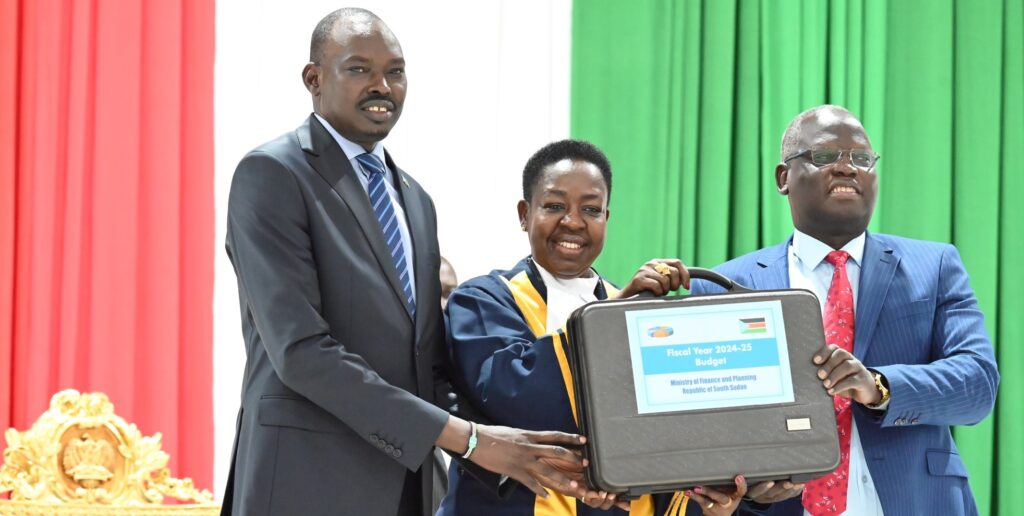Concerns are mounting across the country regarding the 2024/2025 draft budget recently submitted to the Transitional National Legislative Assembly (TNLA) by National Minister for Finance and Planning Marial Dongrin Ater.
Juba resident Jenifer Keji questioned the rationale of passing a budget when civil servants and the organized forces have gone nearly a year without salaries.
“The budget would have little meaning or impact when the lives of the South Sudanese people, who expect to receive services from civil servants, who are the technical people in government, remain unaddressed,” Keji said.
“The failure to pay government employees directly impacts critical services in health, education, and security, leading to increased insecurity and school closures.”
Keji said the failure to address priorities was evident with the ongoing security issues and disruptions in education, as seen when teachers employed by the government shut down schools due to unpaid salaries.
Warrap State resident Dau Ngor, residing in Kuajok town, told Radio Tamazuj Monday that his state prepared a budget every year and sent it to Juba for compatibility, but at the end of the fiscal year, it ended up without realizing its promises to people.
Ngor said South Sudan prepared budgets but there was no physical and tangible infrastructure seen upon the exhaustion of the fiscal year.
“The reason I presume the budget has not positively impacted the people is that the country does not allow investors to establish companies and industries which could generate incomes and the Sudan war has closed the oil production, which the government relies on about 80 %, yet there is little income from non-oil revenues,” Ngor said,
He also blamed the global economic crisis, which he thinks had hit the country hard.
Olara John Baptist from Torit in Eastern Equatoria said even if parliament passed the budget yearly, his state undertook no visible development.
“The first thing that should be done should the government pass the budget is to pay the civil servants,” he said.
Elizabth Ihari said she was frustrated by how the politicians ran the country and the continuing economic deterioration.
“We are not seeing any impact of the annual budget. What we are seeing instead are no salaries, no more incentives for workers. Even teachers cannot afford to educate their own children,” she said.
Economist Dr Abraham Maliet said that without enhancing accountability, the draft budget would fall short of its intended impact.
“An important element is to have people participate in its development,” he explained.
“When you do the budget without involving the people, there is something not right there.”
Dr Maliet further criticized the late presentation of the budget and the failure to provide an expenditure report for the previous fiscal period.
“If you don’t account for the previous quarter, how are you going to inform the next one? This is an accountability issue,” he asserted.
Compounding these concerns is the absence of an audit, which should have been completed prior to the budget presentation.
Juba lawyer Philips Anyang Ngong pointed out that the lack of audit raised questions regarding the budget’s legitimacy and compliance with legal requirements.
“You can’t project to spend what you don’t have or know where to tap it from,” Ngong said.
“In principle, you project it, budget it and recover it rather than budgeting for what is not measurable.”
Ngong said lack of clear mechanisms for revenue recovery was also reason for the government struggling to meet even the basic salary obligations.
As the government prepares to finalize the budget, citizens and experts alike were calling for greater transparency and responsiveness to the pressing needs of the people.




